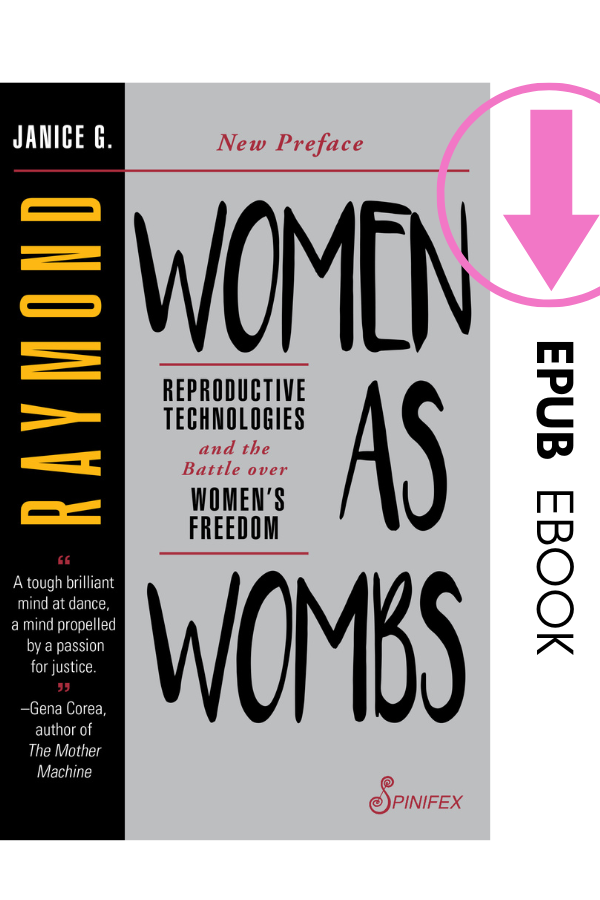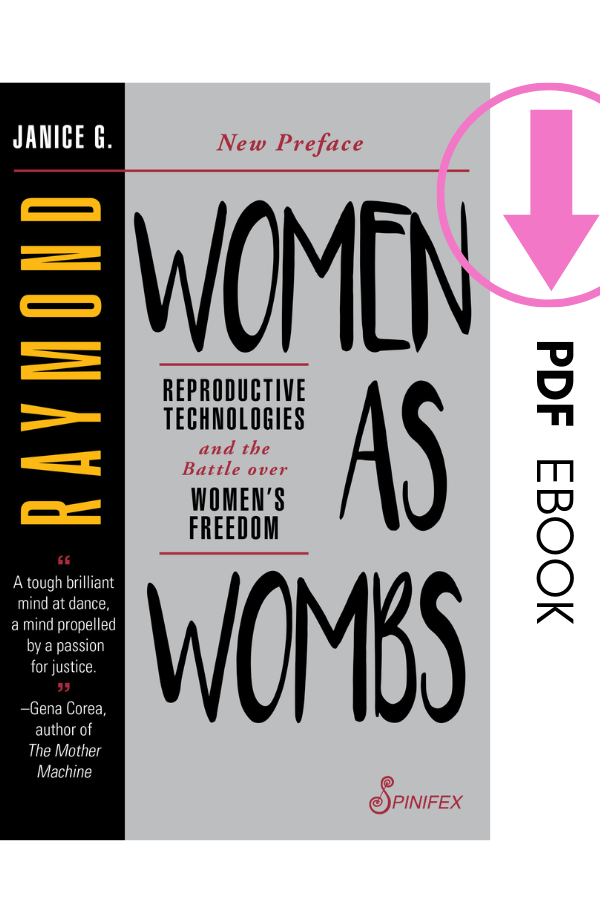Table of Contents
Acknowledgments
Preface to the 2019 edition
Introduction
1. The Production of Fertility and Infertility: East and West, South and North
2. Maternal Environments and Ejaculatory Fathers: New Definitions of Motherhood and Fatherhood
3. A Critique of Reproductive Liberalism
4. The Marketing of the New Reproductive Technologies: Medicine, the Media, and the Idea of Progress
5. The International Traffic in Women, Children, and Fetuses
6. International Human Rights, Integrity, and Legal Frameworks
Notes
Index
A radical feminist's call for an end to reproductive ... violence against women. Challenging ideas, expressed clearly and forcefully, that go provocatively against the grain.
—Kirkus Review
Both compelling and certain to be controversial ... it is hard to resist her conclusion that many reproductive experiments can represent another form of violence against women. Highly recommended.
—Library Journal
A strongly written, carefully reasoned critique of the reproductive liberalism that … lies behind current concepts of reproductive choice.
—K. Kaufmann, San Francisco Chronicle Review








